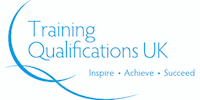TQUK LV2 Diploma - Children's Workforce (Early Years Practitioner)
Accepted by Ofsted. Official RQF qualification. Eligible for TOTUM student card.
UK Open College
Summary
- Exam(s) / assessment(s) is included in price
- Tutor is available to students
- TOTUM card available but not included in price What's this?
Add to basket or enquire
Overview
This fully accredited (Early Years Practitioner course) is aimed at learners looking to, or currently working with children from birth to 5 years, and gain knowledge of children 5-7 years old in a variety of settings.
Qualification
Level 2 Diploma for the Early Years Practitioner (RQF)
Description
Learners will complete 9 units of study in total as listed below.
9 tutor marked assignment to complete
Understand the role of the early years practitioner
Understand the role of the early years practitioner
Understand the role of policies and procedures in a childcare environment
Understand the role of continuos professional development (CPD)
Be able to manage own continuos professional development (CPD)
Health and safety in a childcare setting
Understand legislation and guidance relating to health and safety in a childcare setting
Understand the role of risk assessment in a childcare setting
Understand own role and responsibilities in health and safety related events
Be able to prevent and control the spread of infection
Understand how to handle medications safely
Be able to use safety equipment
Recognise when a child is unwell or injured
Be able to support children to take responsibility for their own health, safety and security
Safeguarding in a childcare setting
Know the legal requirements relating to the safety of children
Understand policies and procedures deisnged to protect children
Understand own role and responsibilities in relation to safeguarding and security
Know how to recognise when a child is in danger
Know what action to take to protect a child who may be in danger.
Understand child development
Understand the learning process for children
Know expected patterns of development for children and babies
Understand external events which can impact upon a child’s development
Understand the role of other’s in a child’s development
Communication with children
Be able to make themselves understood by children
Be able to use communication to support development and learning
Understand how to communicate with children who have communication barriers
Be able to encourage babies and young children to communicate
Be able to use a range of communication methods to communicate with adults
Support activities, purposeful play and educational programs
Understand the statutory framework for babies and young children
Understand the different types of play and activities
Be able to create environments conducive to holistic development
Be able to implement play activities for children
Understand observation, assessment and planning in the context of children’s play activities
Be able to observe children involved in play activities
Support development of babies and children through purposeful play and educational learning
Supporting children with special educational needs
Be familiar with guidance relevant to the care and education of children with special educational needs and/or disabilities
Understand how to work with others when caring for children wth special education needs and/or disabilities
Contribute to individual care plans for children and babies with educational needs and/or disabilities
Know what resources are available to support when caring for a child with special educational needs and/or disabilities.
Working with others in early years childcare
Understand the roles and responsibilities of those involved in early years childcare
Understand the role of family and carers in early years development
Be able to work cooperatively with others
Understand the principles of wellbeing in children
Understand the impact of health and wellbeing on children’s development
Understand the current dietary guidance for early years
Promote health and wellbeing in childcare settings
Promote health and wellbeing in the home
Be able to carry out respectful care routines
Who is this course for?
The early years diploma course prepares learners for employment as Early Years Practitioners. This course is also ideal for learners new to the sector or those have already completed the Level 2 certificate for the Children & Young People's Workforce.
Requirements
Students looking to enrol onto this course should meet the following criteria:
No previous qualifications or experience is required.
Have a confirmed placement in an early years setting or reception class for duration of the whole course. (250 Hours Min overall)
Be aged 16 Years or above
Possess a solid knowledge of the english language
Have access to a PC and the internet for the duration of the whole course
Basic computer skills: e.g Word processing, emailing, uploading documents etc
Have a genuine desire to succeed
Questions and answers
Is this a full and relevant course or just a knowledge only course
Answer:Hi, Thank you for your enquiry! We can confirm that this is the full course and qualification and not just knowledge based. Learners will be assessed both in theory and practically in their setting. This course is also accepted by Ofsted for employment purposes.
This was helpful.
Reviews
Currently there are no reviews for this course. Be the first to leave a review.
Legal information
This course is advertised on reed.co.uk by the Course Provider, whose terms and conditions apply. Purchases are made directly from the Course Provider, and as such, content and materials are supplied by the Course Provider directly. Reed is acting as agent and not reseller in relation to this course. Reed's only responsibility is to facilitate your payment for the course. It is your responsibility to review and agree to the Course Provider's terms and conditions and satisfy yourself as to the suitability of the course you intend to purchase. Reed will not have any responsibility for the content of the course and/or associated materials.


